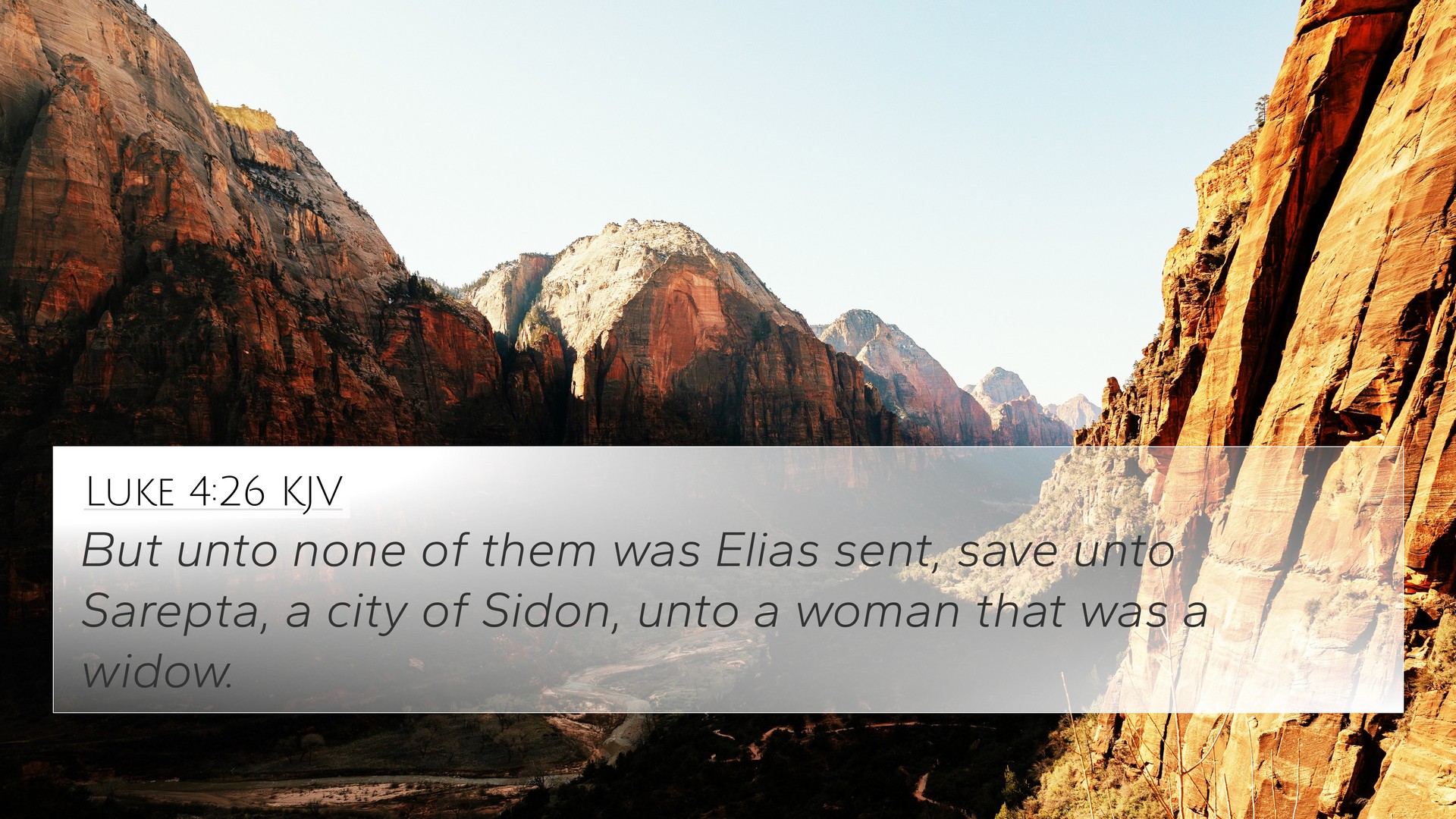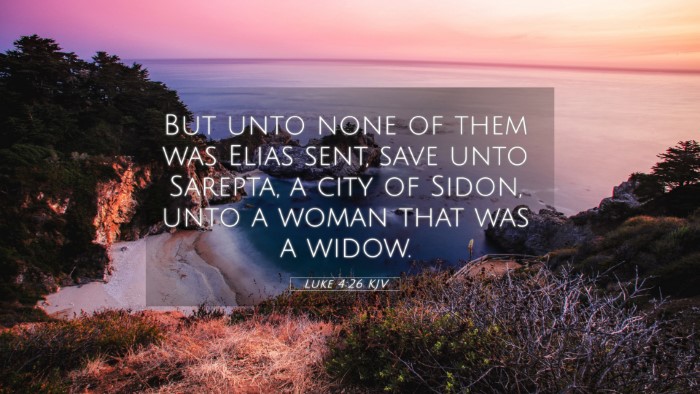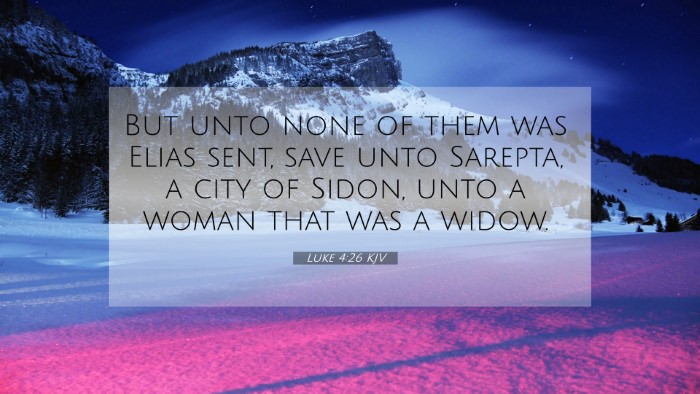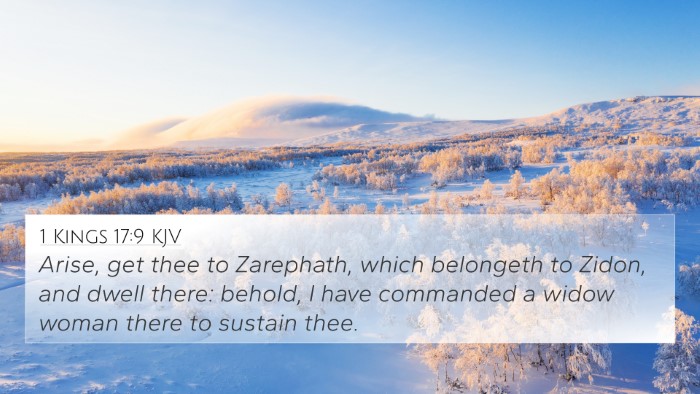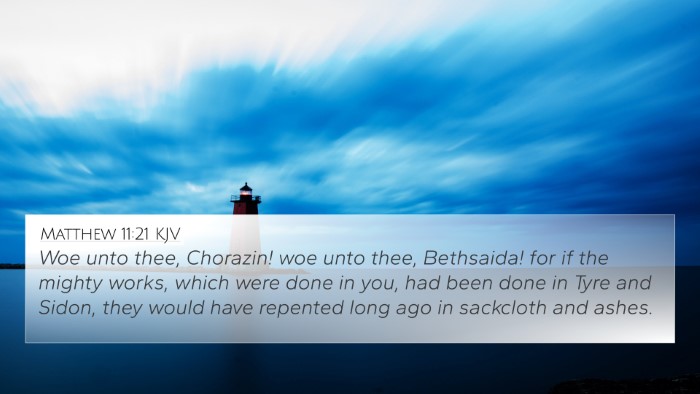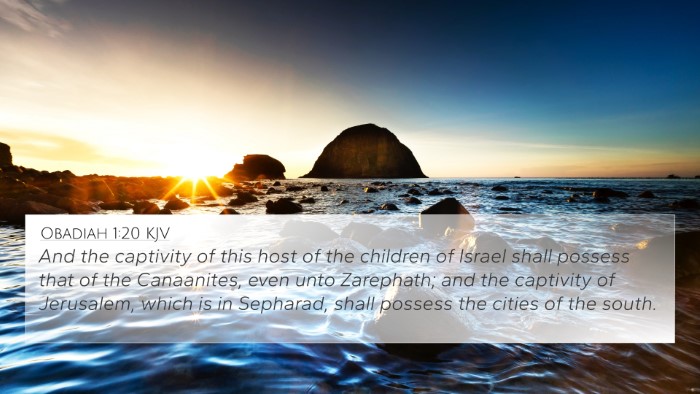Understanding Luke 4:26
Luke 4:26 states, "But unto none of them was Elias sent, save unto Sarepta, a city of Sidon, unto a woman that was a widow." This verse is part of a larger narrative where Jesus is speaking in the synagogue of Nazareth, highlighting the themes of faith and the inclusivity of God's grace.
Context and Analysis
Jesus draws on the Old Testament narrative of Elijah to illustrate His point about faith. Elijah was sent not to the Israelites, but to a Gentile widow, which conveys the idea that God's mercy extends beyond the chosen people of Israel. The implications are profound, suggesting that God's grace is available to all who believe, regardless of their background.
Insights from Public Domain Commentaries
-
Matthew Henry:
Henry emphasizes that God's prophets were often rejected by their own people, yet they found acceptance among the Gentiles. This serves as a reminder that acceptance by God is not limited to a specific group; faith transcends ethnicity and societal status.
-
Albert Barnes:
Barnes notes the significance of the widow. As a non-Israelite, her faith is highlighted as a model for all believers. He urges readers to recognize that God's works are not confined to national boundaries, furthering the narrative of God’s universal grace.
-
Adam Clarke:
Clarke provides commentary on the social implications of this passage. He underscores that in times of need, even the widow received God’s provision, thus exhibiting His compassion towards the needy and marginalized.
Cross-References to Luke 4:26
Several Bible verses explore similar themes of God’s grace and the inclusion of Gentiles:
- 1 Kings 17:9: "Arise, get thee to Zarephath, which belongeth to Zidon, and dwell there: behold, I have commanded a widow woman there to sustain thee."
- Romans 11:25: "For I would not, brethren, that ye should be ignorant of this mystery, lest ye should be wise in your own conceits; that blindness in part is happened to Israel, until the fulness of the Gentiles be come in."
- Matthew 15:24: "But he answered and said, I am not sent but unto the lost sheep of the house of Israel."
- Acts 10:34-35: "Then Peter opened his mouth, and said, Of a truth I perceive that God is no respecter of persons: But in every nation he that feareth him, and worketh righteousness, is accepted with him."
- Galatians 3:28: "There is neither Jew nor Greek, neither bond nor free, neither male nor female: for ye are all one in Christ Jesus."
- Ephesians 2:12-13: "That at that time ye were without Christ, being aliens from the commonwealth of Israel, and strangers from the covenants of promise, having no hope, and without God in the world: But now in Christ Jesus ye who sometimes were far off are made nigh by the blood of Christ."
- John 4:22: "Ye worship ye know not what: we know what we worship: for salvation is of the Jews."
- Luke 7:9: "When Jesus heard these things, he marvelled at him, and turned him about, and said unto the people that followed him, I say unto you, I have not found so great faith, no, not in Israel."
- Matthew 28:19: "Go ye therefore, and teach all nations, baptizing them in the name of the Father, and of the Son, and of the Holy Ghost."
- Isaiah 56:6-7: "Also the sons of the stranger, that join themselves to the LORD, to serve him, and to love the name of the LORD, to be his servants, everyone that keepeth the sabbath from polluting it, and taketh hold of my covenant; Even them will I bring to my holy mountain, and make them joyful in my house of prayer."
Thematic Connections in Scripture
The verse reflects the broader theme of God's outreach to the Gentiles, signifying His desire for all to come to Him in faith. This connects with the ministry of Jesus, who emphasized a kingdom that included those often marginalized or overlooked by society.
By examining Luke 4:26 alongside its cross-references, we see an intricate web of scripture that underlines the universality of God's love and salvation. This inter-Biblical dialogue encourages deeper exploration and comprehension of God’s overarching plan for humanity.
Conclusion
Luke 4:26 serves as a powerful reminder of God’s inclusive grace, as illustrated through the story of Elijah and the widow. By cross-referencing various related scriptures, readers can gain a richer understanding of how the teachings of Jesus resonate across the biblical narrative.
Employing tools for Bible cross-referencing can enhance your understanding of intricate biblical themes and their interconnections. As you study these verses, consider how they relate to your spiritual journey and the broad nature of God's grace.
